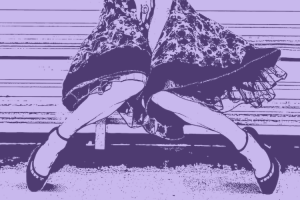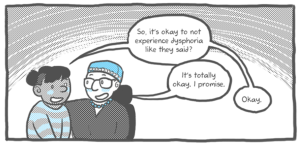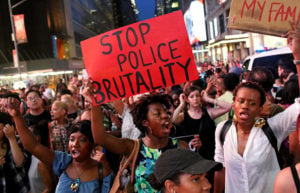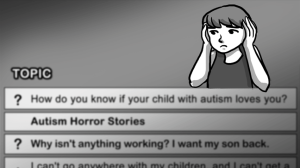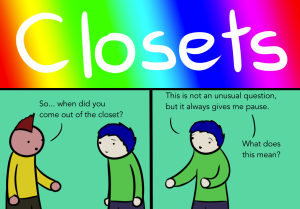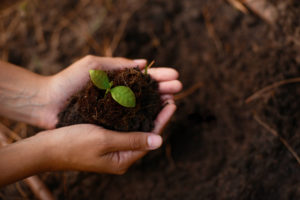
Closeup of two hands holding a sapling over a plot of soil.
I’ve never doubted that climate change is happening – or that it’s primarily caused by human actions.
I remember learning about the Earth’s rising temperature in elementary school and how it’s caused by the increasing volume of gases, like carbon dioxide, in our atmosphere. And it terrifies me that even though I learned this over a decade ago, not nearly enough has been done to change or regulate how much of these toxic gases we release.
They are emitted primarily through our use of fossil fuels to produce energy for the household and for industry. They trap heat in the atmosphere, accounting for a number of disastrous effects on the planet that scientists collectively call climate change – effects such as a higher number of extreme weather events (floods, droughts, and hurricanes, for example), melting ice caps that contribute to rising sea levels and less salty seas, and the destruction of habitats that leads to species extinction.
All these effects make it unpleasant – and eventually impossible – for humans and other organisms to live on Earth.
But up until last year, when a study exposed the dangerous levels of lead in the water supply in Flint, Michigan, I never considered any environmental issue a “social justice” issue.
Although the elevated levels of lead in the water supply from the Flint River doesn’t directly cause the warming of the planet, the way Flint’s local government mishandled the situation got me thinking about the winners and losers in this system where the environment is valued only in economic dollar terms.
It also made me think about whether the situation would have been handled differently if Flint wasn’t comprised of majority Black and poor residents.
Human activity within a capitalist society has not been eco-conscious. Governments and large corporations put the Earth’s environment on the backburner in order to cut costs and cut corners for profits. This mindset preserves inequality, de-prioritizes climate change for short-term gains, and causes nonhuman and human suffering.
What’s even sadder is that I don’t have the privilege of always making eco-friendly consumption choices because they are often out of reach on my income, and the products I can afford are often affordable at the expense of the environment and humanity.
I once thought that if I did the right individual actions like recycle properly, remember to conserve electricity, take public transportation, support collective efforts to conserve wildlife, preserve natural spaces, and reduce carbon emissions, that it would be enough. But there is an entire system that deters us from properly caring for the coral reefs, our rivers, and ourselves.
And until we treat climate change as a social issue that is not a separate issue for environmentalists-only or as separate from social justice work, we are not addressing the full issue.
It is easy for many of us to consider our own activist work to be more important, more urgent, and more relevant to the concerns of the immediate generation. But climate change isn’t just a distant or separate problem affecting only future generations (who we do also have a social responsibility to care about). Rather, it’s an issue that has accelerated in severity within our lifetime and directly contributes to injustice in most facets of human life.
Here are three reasons why climate change needs to be framed as a social justice issue when we design policies to stop it.
1. Climate Change Is Caused by the People Who Are the Least Affected By It
There are many ways to measure which countries are most responsible for contributing to climate change, but they all tell us that the biggest contributors to climate change are not the same ones that are most vulnerable to climate change.
Although Small Island Developing States, like islands in the Caribbean, in the Pacific Ocean, and off the coast of Africa and Asia, account for 0.003 percent of greenhouse gas emissions, these islands are at risk of completely disappearing due to rising sea levels, which have already caused displacement of coastal communities.
Carbon dioxide emissions are also often a direct signifier of a country’s economic growth. And these wealthier countries are generally better equipped with the laws and infrastructure to handle weather emergencies, epidemic outbreaks, and climate-related loss of livelihoods that make poorer countries so vulnerable to the effects of climate change.
Countries closer to the equator already experience high heat temperatures closer to our bodies’ biophysical thresholds so that incremental rises in temperature are much more dangerous. Heat also increases the rise in transmission and incidence of airborne and waterborne diseases in the tropics – generating unpayable health costs as the majority of the world’s poorest people do not have health insurance coverage or access to financial products and services.
Climate change has also been correlated with increases in violence and conflict, especially in countries that are ethnically diverse.
In regions that are already unstable, heatwaves and droughts resulting from climate change threaten the supply of food and other resources, exacerbating conflict between already tense or opposing groups of people.
Scientists have also shown a positive relationship between rises in temperature and aggression across many different situations.
In fact, on September 21, the Obama Administration called on US governmental agencies to treat climate change as a threat to national security, recognizing that the effects of climate change “can stress some countries’ ability to provide the conditions necessary for human security. All of these effects can lead to population migration within and across international borders, spur crises, and amplify or accelerate conflict in countries or regions already facing instability and fragility.”
Yet these unequal distributions of negative impact from climate change aren’t very visible to citizens within the United States and other industrialized countries who do not bear the severest brunt of weather pattern changes. Additionally wealth inequality and poverty make it difficult to say no to expanding industries that release so much carbon into the atmosphere.
If we want to fight injustice, we must recognize at just how many levels it operates. We must be aware of just how intertwined our fights against oppression are and the convoluted way in which various forms of discrimination interact in social systems.
Climate change is not only unfair to nonhuman living creatures that have done nothing to cause it, but deeply unfair at the national level to countries with citizens who have to deal with its most acute consequences while receiving none of the profits – and as we’ll see, deeply unfair within already oppressed communities.
2. Climate Change Causes Suffering That Disproportionately Affects People with Less Power
This is equivalent to those who are economically disadvantaged or discriminated against because of their race, gender, class, and other identities that affect their ability and opportunity to generate economic value.
People with less ability or fewer financial resources to relocate or protect themselves and their belongings cannot adapt as quickly as others in situations of weather distress. These groups, like women and children, are the most vulnerable populations to climate change.
Women around the world and within the United States are often the first to be affected by climate change and environmental pollution.
In the developing world, the majority of women often work in agriculture. When droughts destroy crops, they lose their livelihoods and harvests. Further, poor families are most sensitive to higher food prices when food is scarce, and women and girls often give up their portions first.
Arguably, children are the least responsible but the most affected because of their developing minds. They often have no control over where they live, yet the consequences of living in polluted and health hazardous environments has the most permanent and lasting effects on them, leading to a future generation of individuals who start out at an extra disadvantage to those who were not exposed to such toxins as a child.
The distribution of the gains and the burdens of industry that contribute to climate change is unequal – not just between nations, but also between geographies and populations within the United States.
Robert D. Bullard, largely considered a founding figure of the environmental justice movement in the 1970s after discovering the concentration of Houston’s toxic waste dumpsites and landfills in predominantly Black communities writes, “When we restrict the boundary conditions of ‘environmental concern’ to include only environmental impacts related to air, water, land, we tend to ignore critical impacts to sociocultural and cultural systems.”
Because social justice and environmentalism don’t always align in their objectives, lower-income communities often face the decision of choosing industrial development and jobs over their health, a trade-off that ends up nefariously ruining a community’s potential for prosperity in the long-run as the attractiveness of the neighborhood degrades and property values decrease.
This blatant disregard for human lives is fueled by a capitalistic growth-oriented mindset that puts profits and resource extraction over people and our planet.
In fact, companies have little incentive to do otherwise and can get away with their actions because entire communities may rely on a particular industry for employment. Multinational companies can also contribute to inequality by moving their operations to countries with lower levels of regulation and continue production at lower levels of safety – to the detriment of the local population.
3. Attempts to Moderate Climate Change Contribute to Discrimination
Climate change has layers of impact at the individual, community, national, and global level across generations. It is a systems-problem, so solutions must take into account the complexity and the many stakeholders affected.
Yet policy solutions combating toxic waste, air pollution, carbon emissions, and other environmental hazards don’t take into consideration their effects on communities with the least political power.
This is because environmentalism as a movement has been criticized for being elitist in ways that make its approaches to policy incompatible with efforts for social justice.
Sociologists acquainted with the environmentalism movement suggest the elitism is compositional, which means it starts with the types of people who are most likely to participate. Many of the people lobbying for policies to combat climate change or combat pollution are college-educated, higher income, and privileged folks who create policies benefiting themselves and passing the costs to non-environmentalists.
When these environmental activists in positions of relatively more power say, “Not in My Backyard” about placement of toxic waste centers or industries that contribute to pollution (pejoratively known as the NIMBY phenomenon), it can lead to the PIBBY phenomenon: “Place in Blacks’ Back Yard.”
On a global level, the countries with the most power in world governments like the United Nations, which come up with multinational treaties to reduce human impact on climate change, are often the developed countries that have more to lose economically from the reduction of carbon emissions.
So when treaties are drafted with the input of the most powerful nations given the greatest weight, they don’t prioritize the urgent needs of developing nations or the islands most affected by climate change.
Whether intentional or not, the impact is elitist when the effects of environmental policy and reforms systematically distribute the costs of climate change and environmental pollution onto the less privileged or are inconsistently enforced across communities.
If all stakeholders affected by climate change are not given a more-than-token spot at the table, the solutions cannot be fully accountable to all parties involved.
***
Climate change requires our immediate attention. If we don’t incorporate climate change into our social justice work, there will be no society for us to even fight for in as little as twenty-five years.
Though we might know that climate change has devastating consequences, its scale makes it difficult for us to grasp the many levels it negatively affects us already – just as the effects of a legacy of racism are so insidious, it is difficult to single out each way it impacts the experiences of a person of color.
If we break down the causes of climate change, its effects, and our proposed solutions into the ways they contribute to injustice to less powerful communities, we can tackle being better stewards of our planet – and of humanity at the same time.
[do_widget id=’text-101′]
Jessica Xiao is a Contributing Writer for Everyday Feminism. She is a self-proclaimed nerd and book hoarder who is guilty of tsundoku. Often inaccurately described as Canadian, she thinks of herself more as a Montrealer with US citizenship living in Washington, DC, after having obtained her BA & Sc. in Psychology and the dark art of Economics at McGill University. She is a grant writer for the Montreal-based international women’s economic development nonprofit Artistri Sud and the former assistant editor and writer at The Humanist. She believes in empathic action and bringing our whole selves to every aspect of our lives for transformational social change. She frequently quotes Dorothy Parker and writes bad poetry at stillsolvingforx.tumblr.com
Search our 3000+ articles!
Read our articles about:
Our online racial justice training
Used by hundreds of universities, non-profits, and businesses.
Click to learn more












